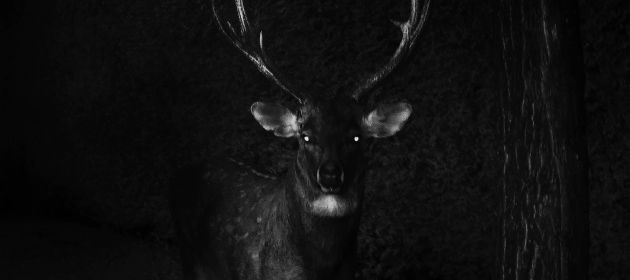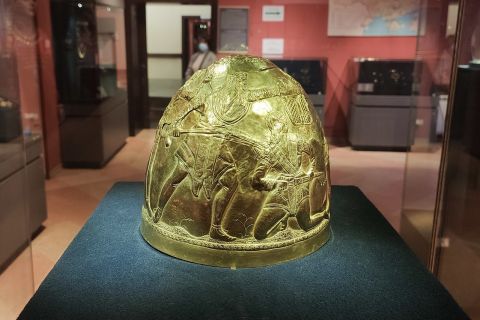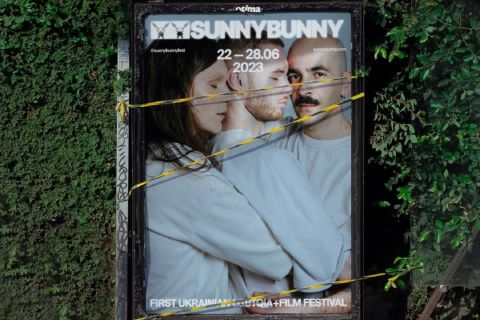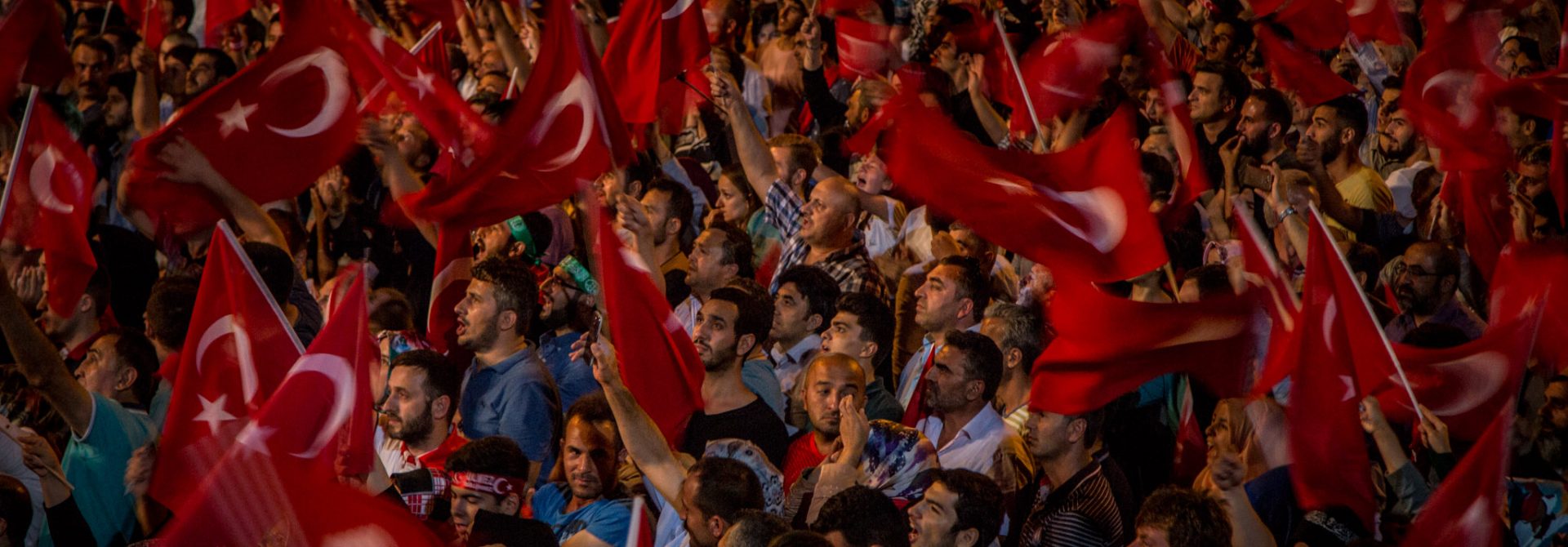
Turkish People Speak: “They Call It Democracy, but All They Really Need Is War.”
A traveler who would arrive in Istanbul these days will be pleasantly surprised with the lack of queues at the airport, inexpensive accommodation, and free public transportation. It may seem at first that winter came to Turkey half a year too early, bringing the non-tourist season. However, it is still hot outside, Rakı & Balık restaurants are full of guests, and the said are having lively discussions of the latest events.
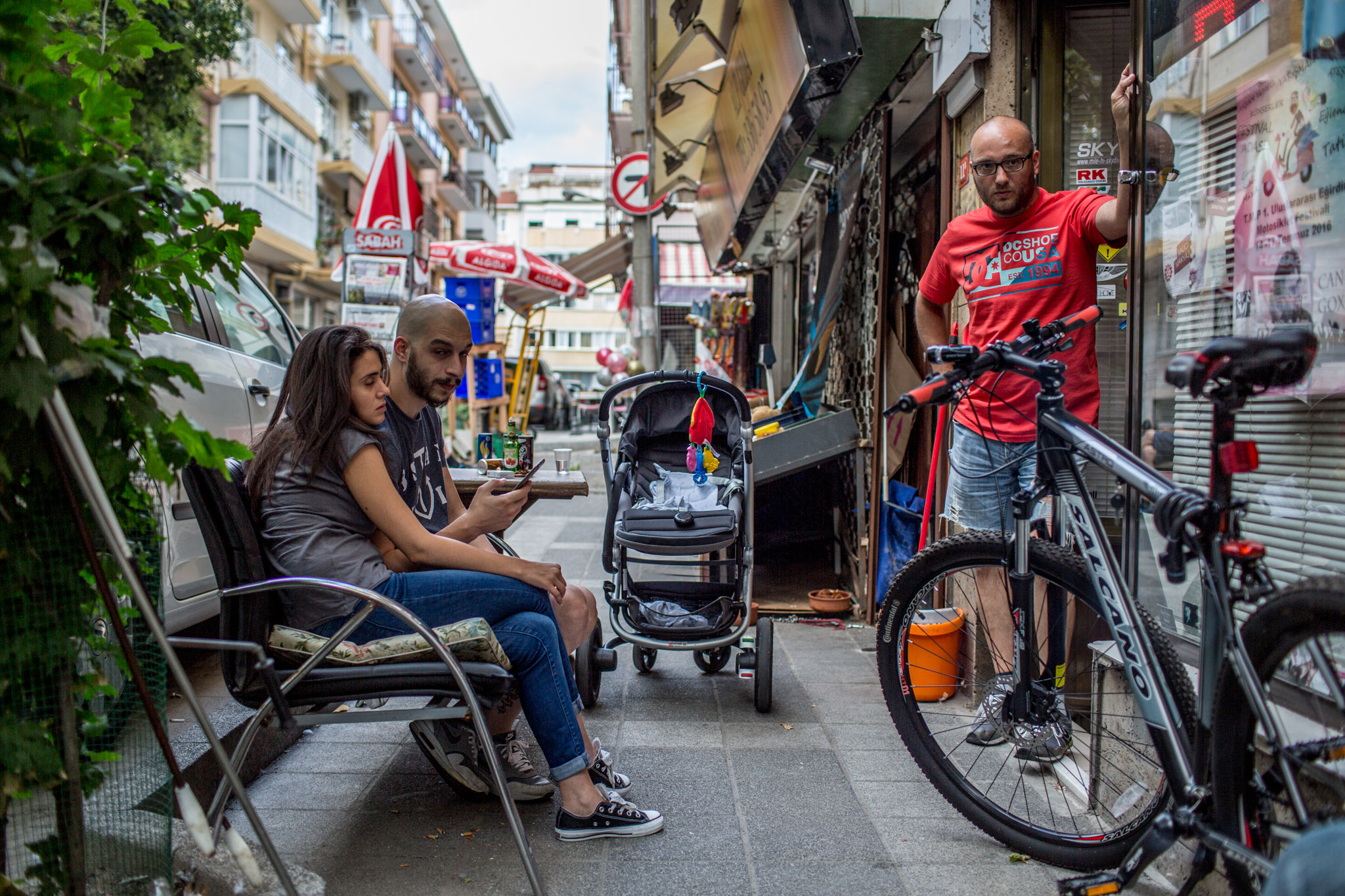
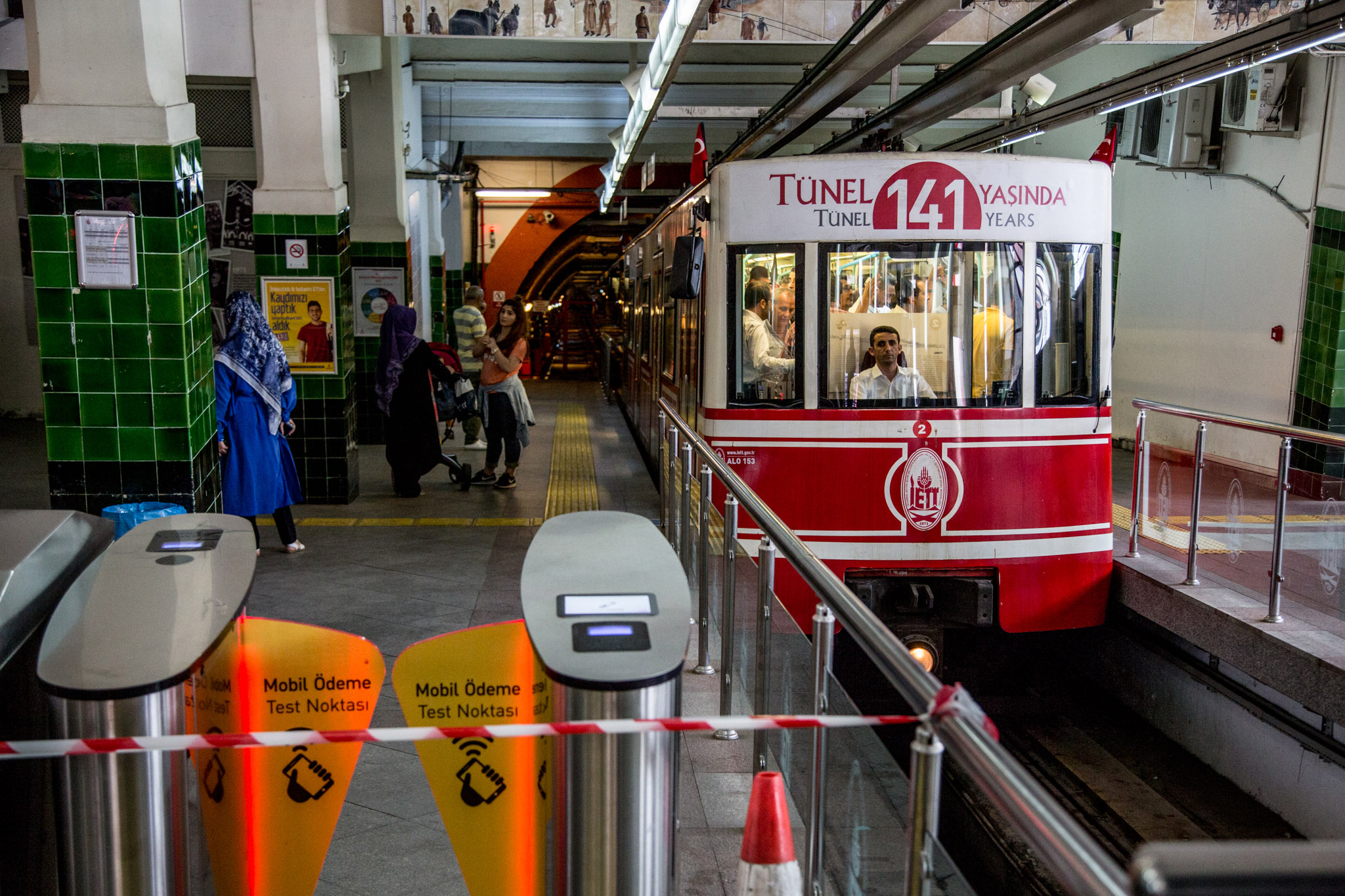
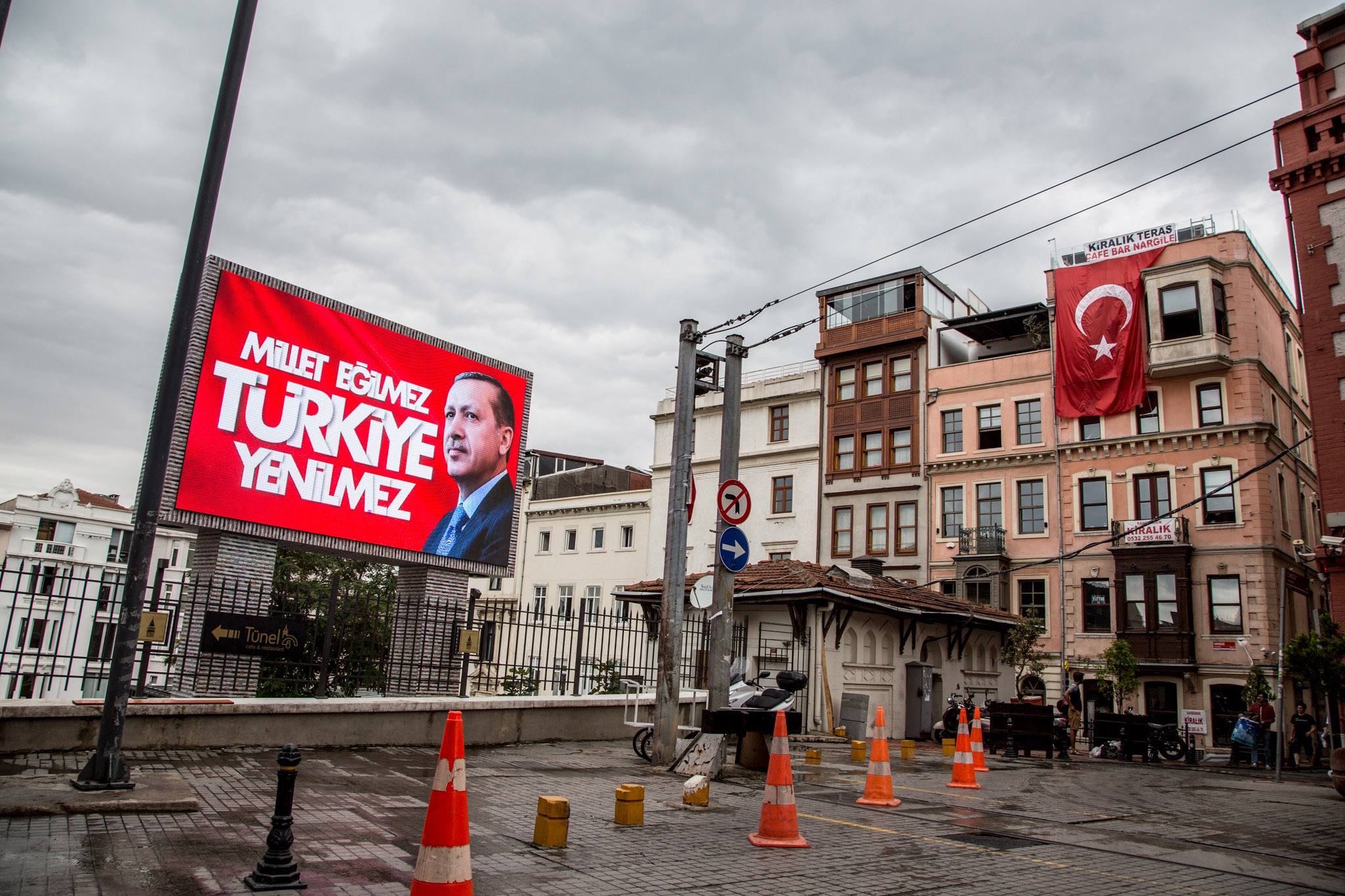
To understand why the views of Turkish citizens are different, one can remember that Istanbul with its population of 14 million is like a patchwork blanket: the city is made of many big and small neighborhoods inhabited by people with different religions, ethnic origins, and political views.
If you step away from the crowd that has been loudly celebrating the victory of Erdogan and democracy over the rebels at Taksim Square for days now, and walk across the boulevard, in the narrow streets you’ll see much fewer Turkish flags and see passersby with anxious eyes. This is Tarlabaşı, the Kurdish neighborhood.
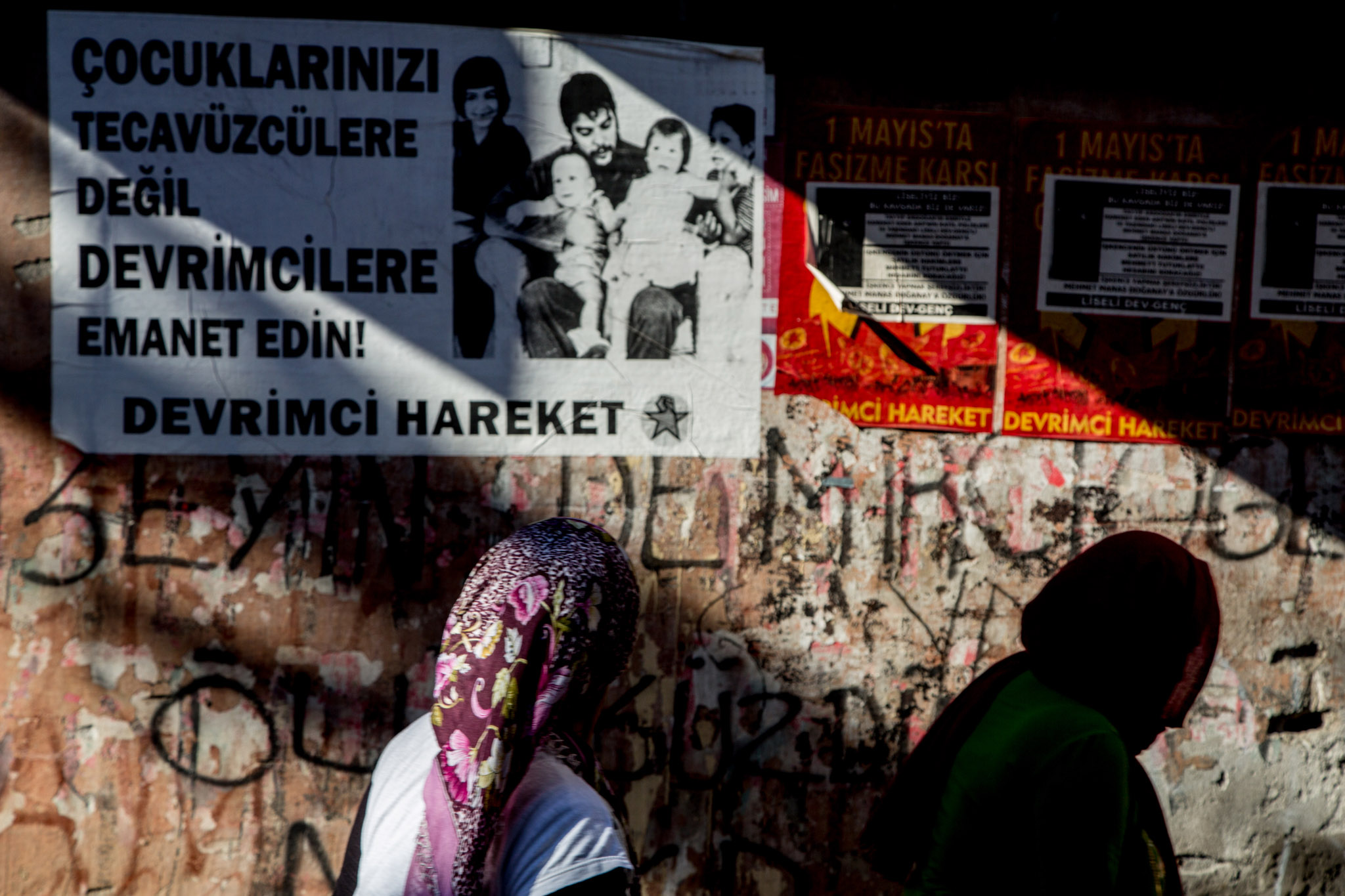
Okmeydanı
Further to the north-west is the Okmeydanı neighborhood populated by Alawites, who follow Shia Islam and traditionally lean to the left. The walls here are covered with the names of socialist parties and banned militarized groups associated with them, as well as calls for an armed uprising. There are no Turkish flags in Okmeydanı at all; the police try to avoid this neighborhood if they don’t have to be here.
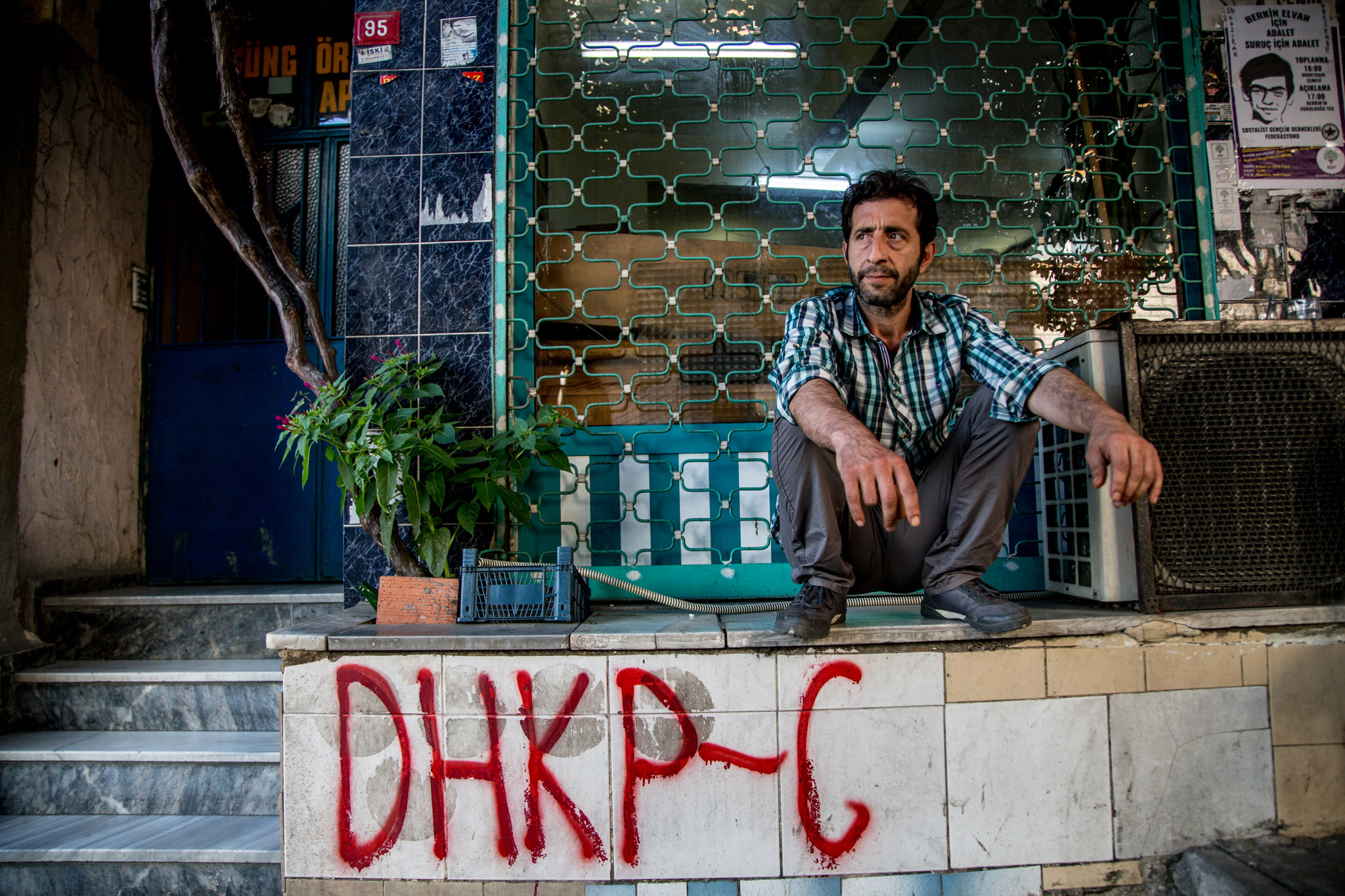
— It’s Erdogan who is a coup leader — says Hasan, the owner of the local carpentry workshop, accompanying his speech with gestures and circling around his working table covered in shavings. — But we won’t give up, we will resist!
Like many, he believes that the coup was planned by Fethullah Gülen, but eventually implemented by the current president, who completely usurped power.
Hassan says he is not only a socialist, but also an atheist, and makes an impression of an entirely secular person, who was born and grew up in a different country in a different time, but at the same time shares a belief which is common for all Turkish people regarding their political preferences: it was all started by the Americans.
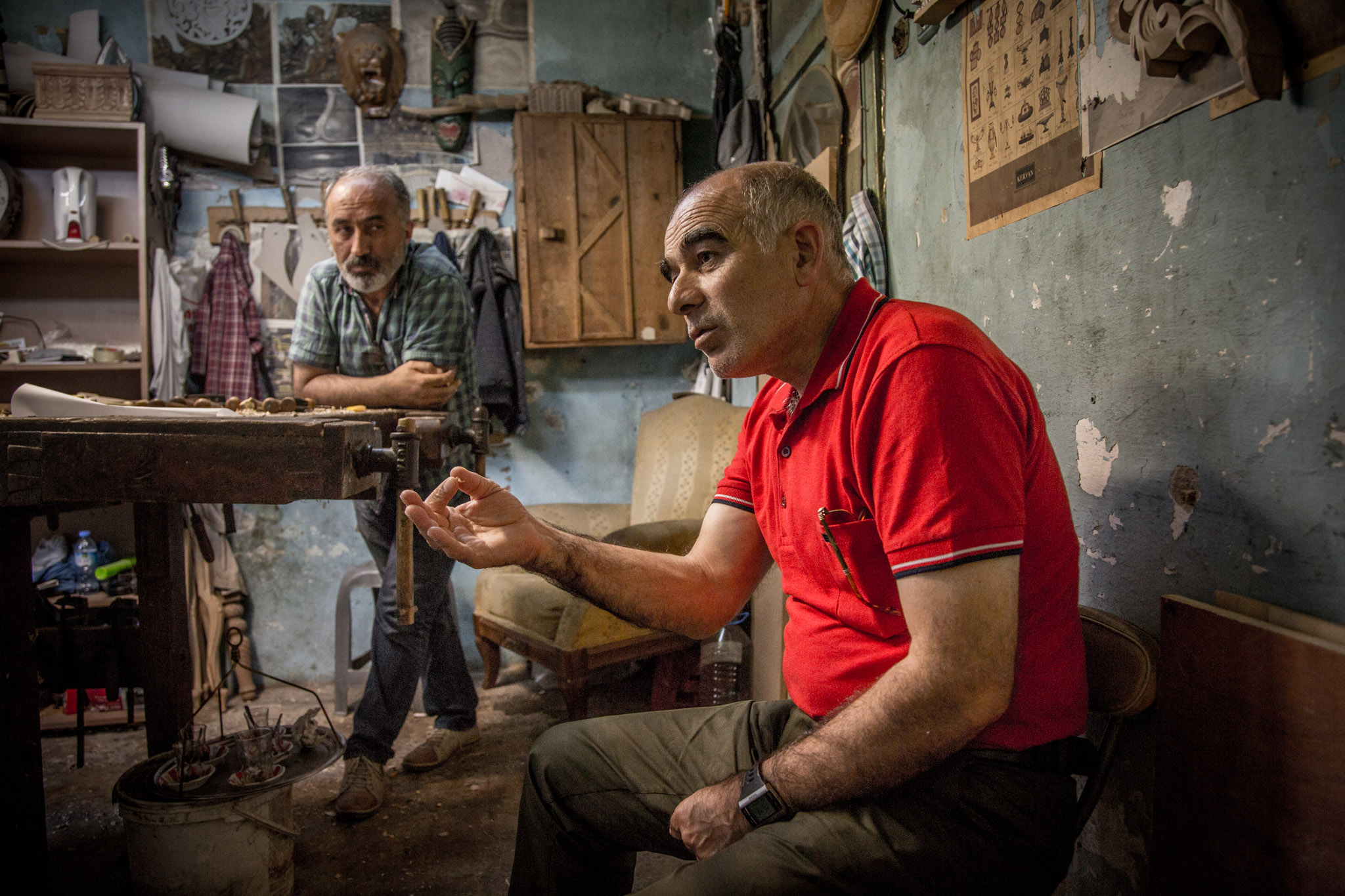
— The previous coup destroyed all left organizations. But Erdogan is worse than any coup, — Sadik, a friend of Hasan’s, a grey-haired man in a red polo shirt, joins the conversation. He thinks that the coup fell through because it was plotted by Gülen, an Islamist, who has no support among Kemalist officers (Kemalists are nationalists, supporters of the ideas of Kemal Atatürk, who made Turkey a secular state — Ed.)
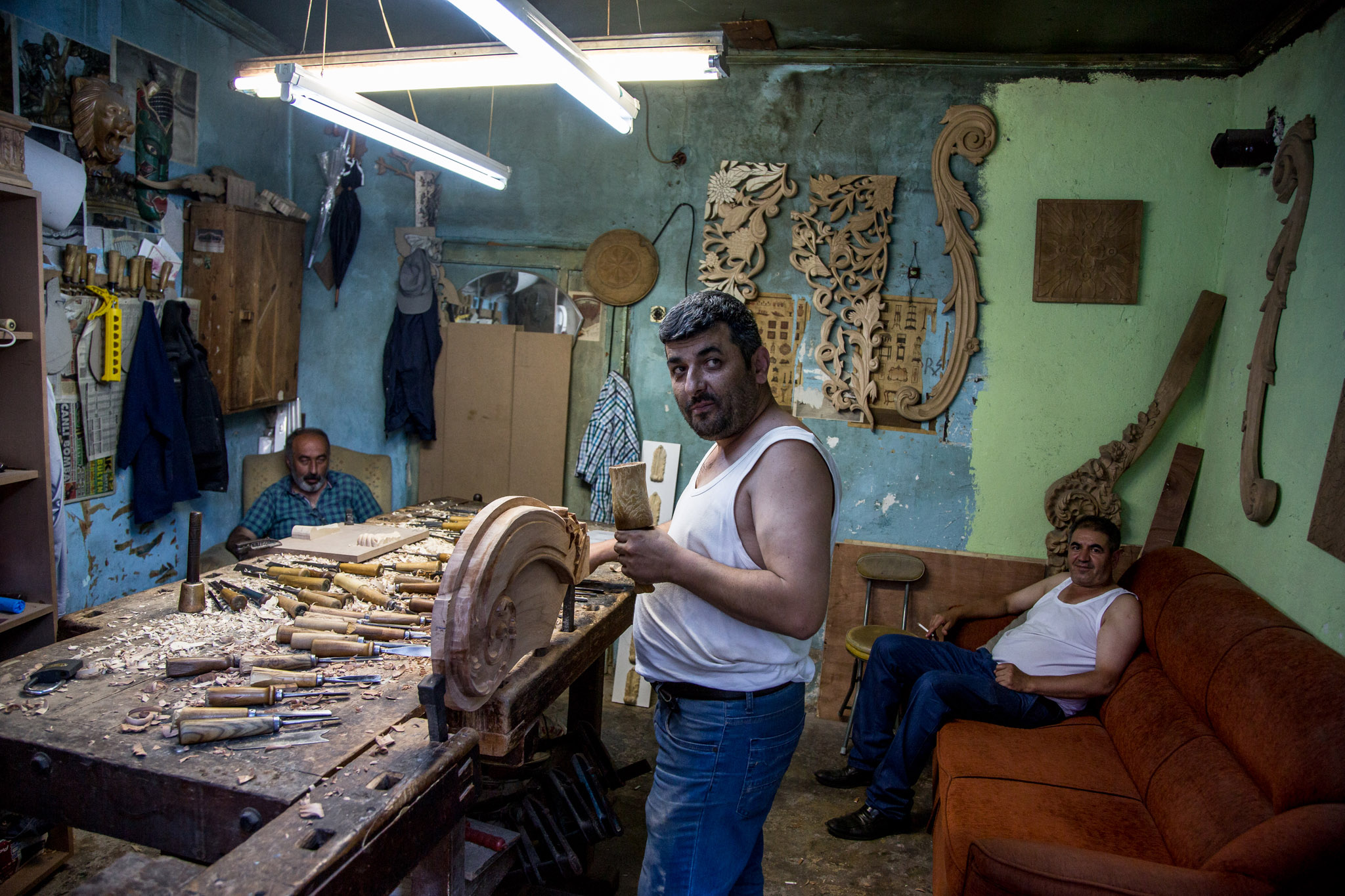
Üsküdar
To move from Okmeydanı to the Asian part of Istanbul you need to cross the Bosphorus by a bridge. Only ten days ago it was filled with the tanks of the coup participants, but now there is a regular traffic jam. Immediately beyond the bridge, there is a rich neighborhood called Üsküdar. This is where the conservatives live, and every day a group of Erdogan supporters gather under his big two-story house. Speakers talk until 4am, and if the president was home, he couldn’t have fallen asleep.
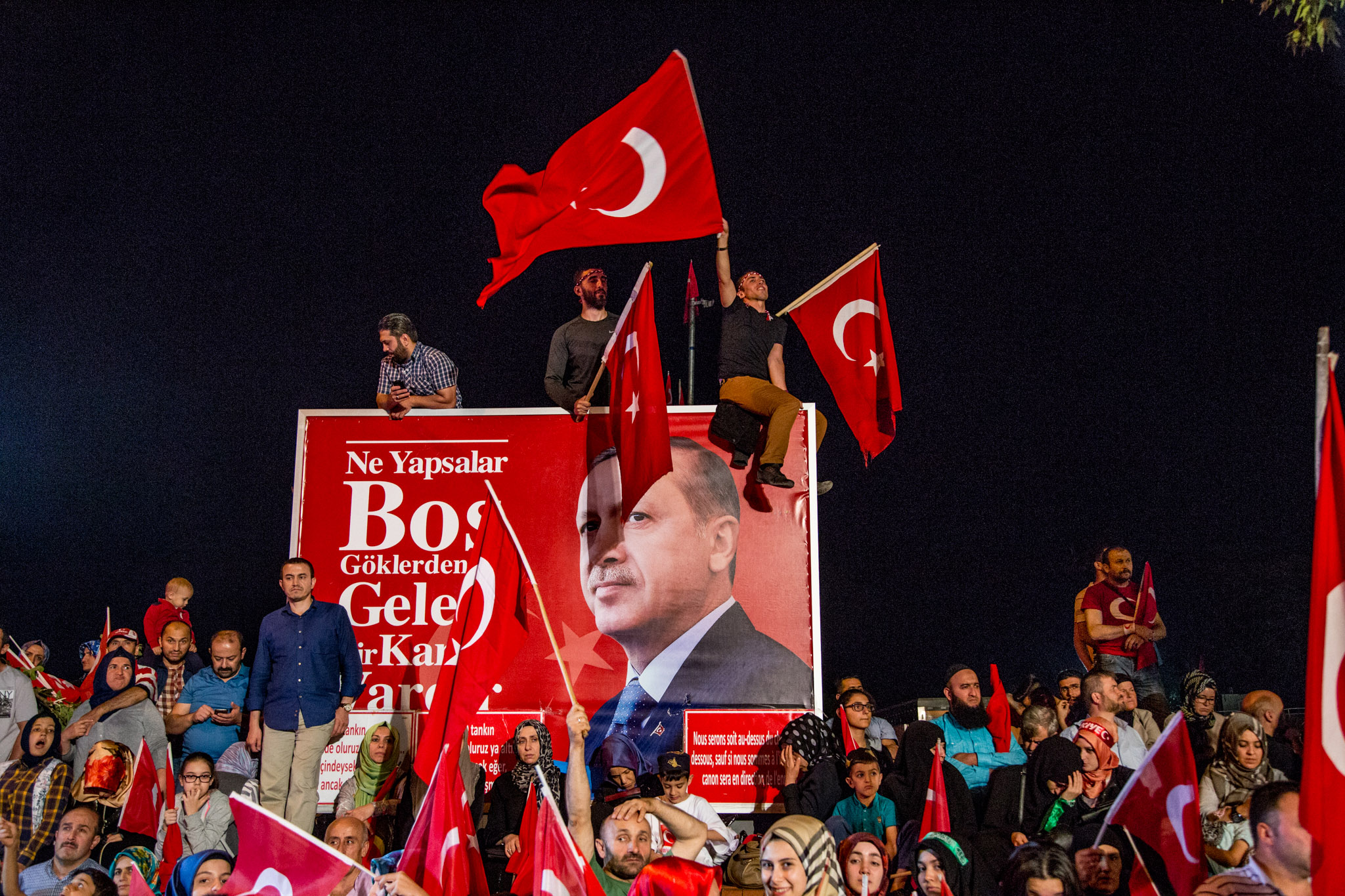
Businessman Farouk lives here in Üsküdar. He is big, merry, he enjoys talking about politics and talks a lot about it, able to express his thoughts well, although English is not his native language.
Farouk says he is a nationalist. On the night of July 16 he was in Atatürk airport in Istanbul, and when he heard about the military on the bridge he immediately called his sister and asked her, if she heard a song of Hasan Mutlucan on TV (after the coup of 1980, folk songs performed by Mutlucan were on TV so often he got nicknamed ‘coup singer’, although he himself has never voiced support of the military government and called himself a democrat).
— She said: “No, not once.” So I realized they were not Kemalists, — Farouk recalls. — I called my guys, told them to go to the police, take a policeman along and go to the bridge. Later, they captured a tank there.
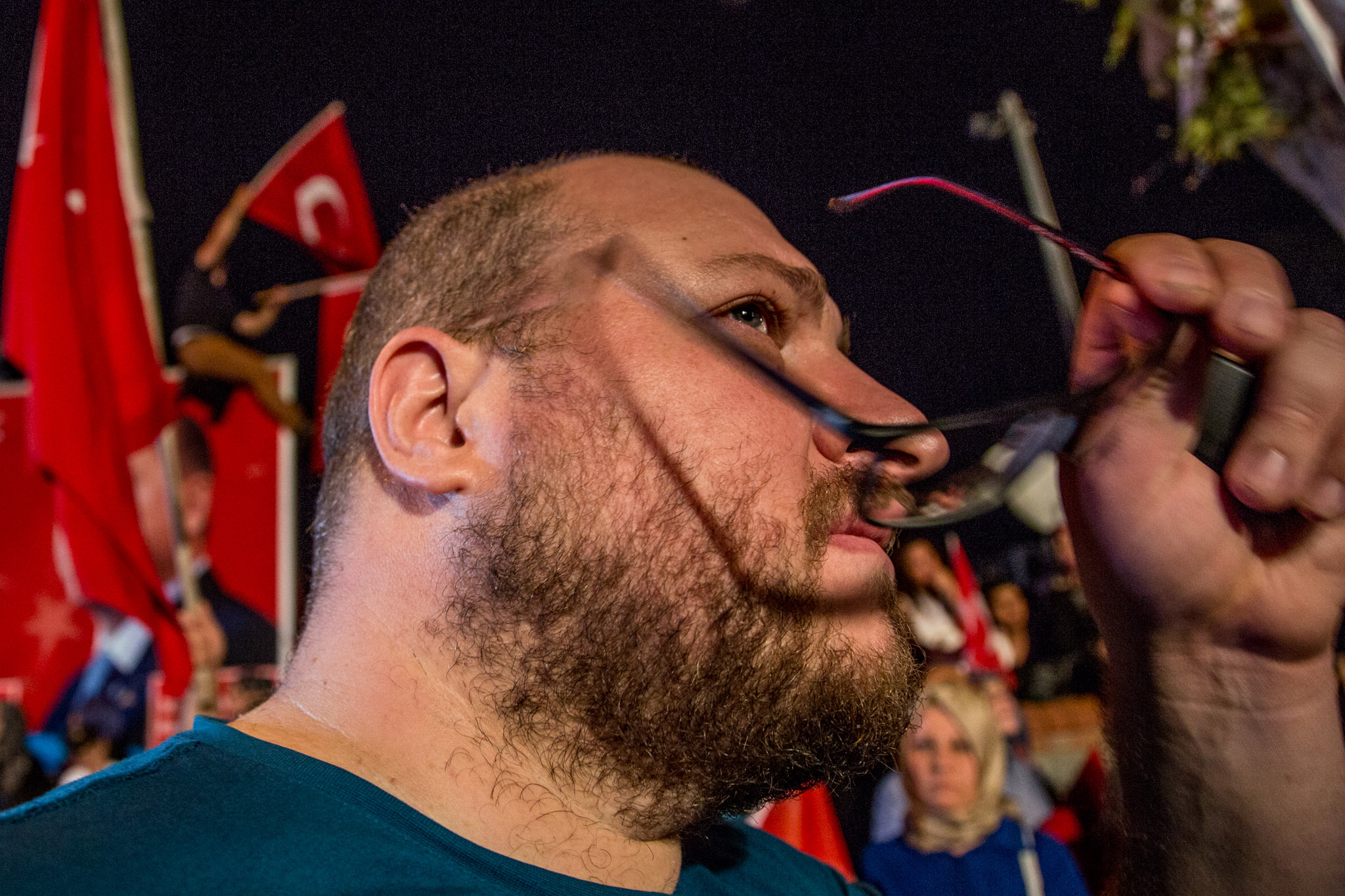
Kadıköy
To the south from Üsküdar, where the Bosphorus joins the Sea of Marmara, lies another rich neighborhood — Kadıköy. In Kadıköy you can stroll on the embankment with the view on minarets of Sultanahmet, and watch an incredibly beautiful sunset which paints the sea red in the evening.
They don’t like Erdogan in Kadıköy, which is also called the capital of the Gezi protest. People here are discouraged, many want to leave the country or the city, they complain about the supporters of the president, who allegedly drive around the streets of the neighborhood each night, hurling threats and insults at the locals.
Fatih, the owner of a local tattoo parlour, a tall smiling young man with an Atatürk tattoo on his shoulder, took part in the protests in Gezi Park and Taksim Square three years ago, together with the members of his bike club. Now, he wants to leave the country.
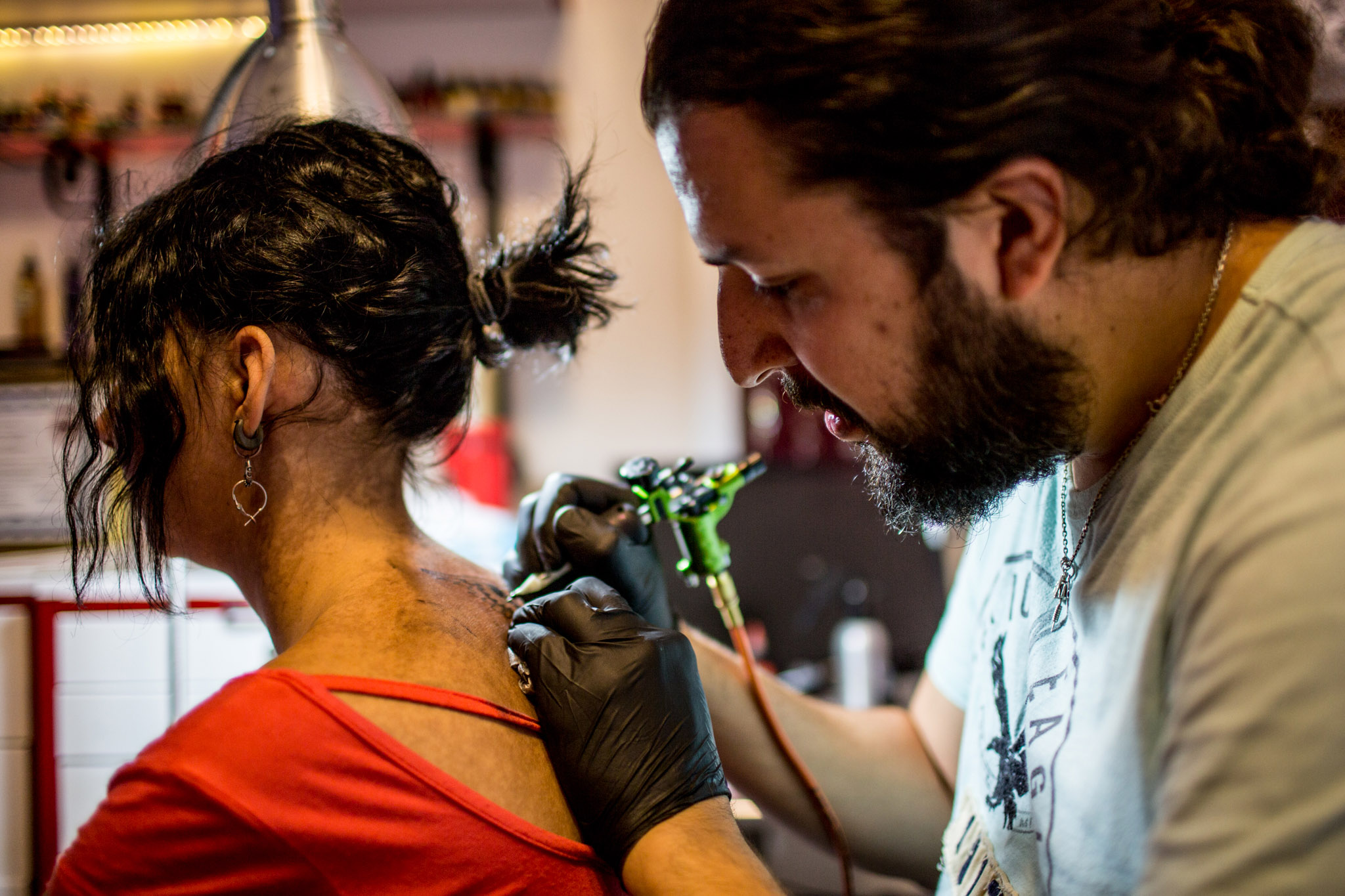
— If I stay here, something bad may happen, — says Fatih, while doing an owl with orange eyes on his female client’s back. He fears Islamists. — They are targeting modern people. And they will come. And I have a wife and a child, and I will have to fight, but it is not my fight. They call it democracy, but all they really need is war.
Like most people, Fatih is blaming the fueling conflict on the Americans, but he wants to go to the US, because he believes he and his family would be safe there.
Murat, a tanned 52-year-old owner of a semi-basement metal workshop and a graying musketeer bear, feels the same. He can’t hide his anxiousness and is smoking one cigarette after another right at his crafting table.
— I am scared. Everyone around is scared, — Murat says and confesses he would like to leave, too — not to the States like Fatih, but at least to Bodrum. — If war breaks out, we won’t be able to leave. We need to leave now.
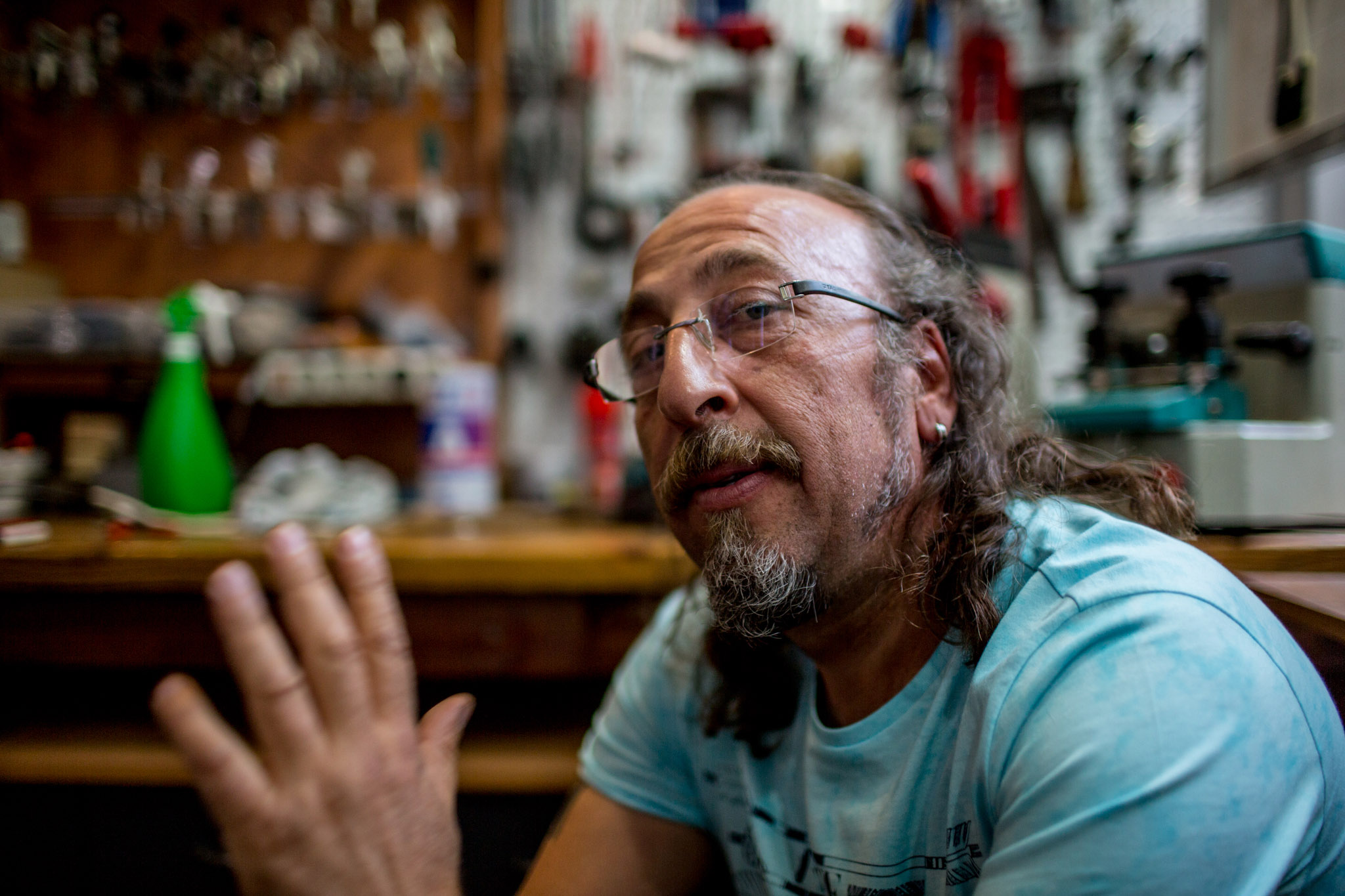
Taksim
Many people who took part in the protests against the Erdogan government in Taksim Square and Gezi Park in 2013 now feel desperate and not ready to fight. Their place in Taksim Square is now taken by the supporters of the current president.
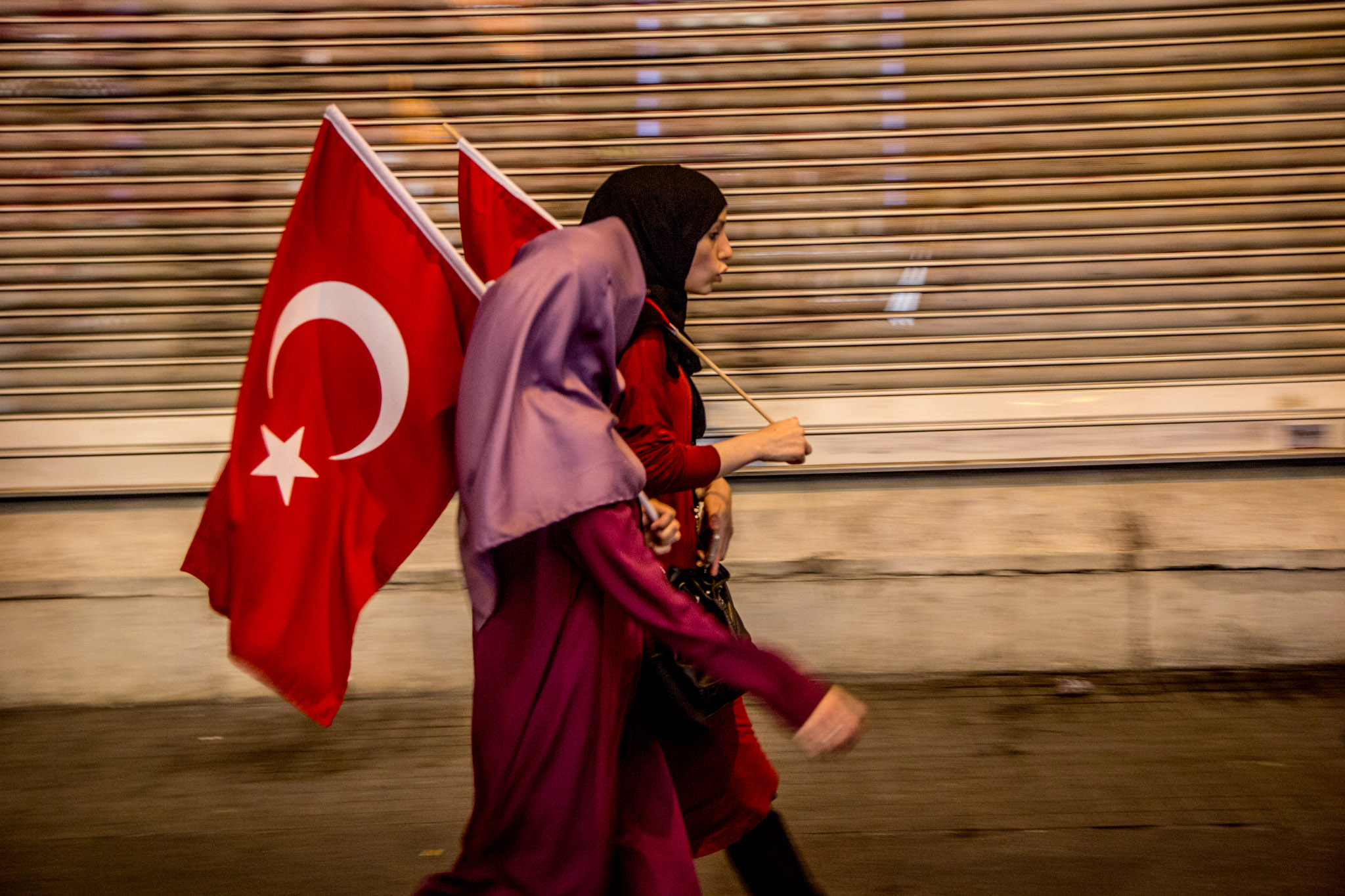
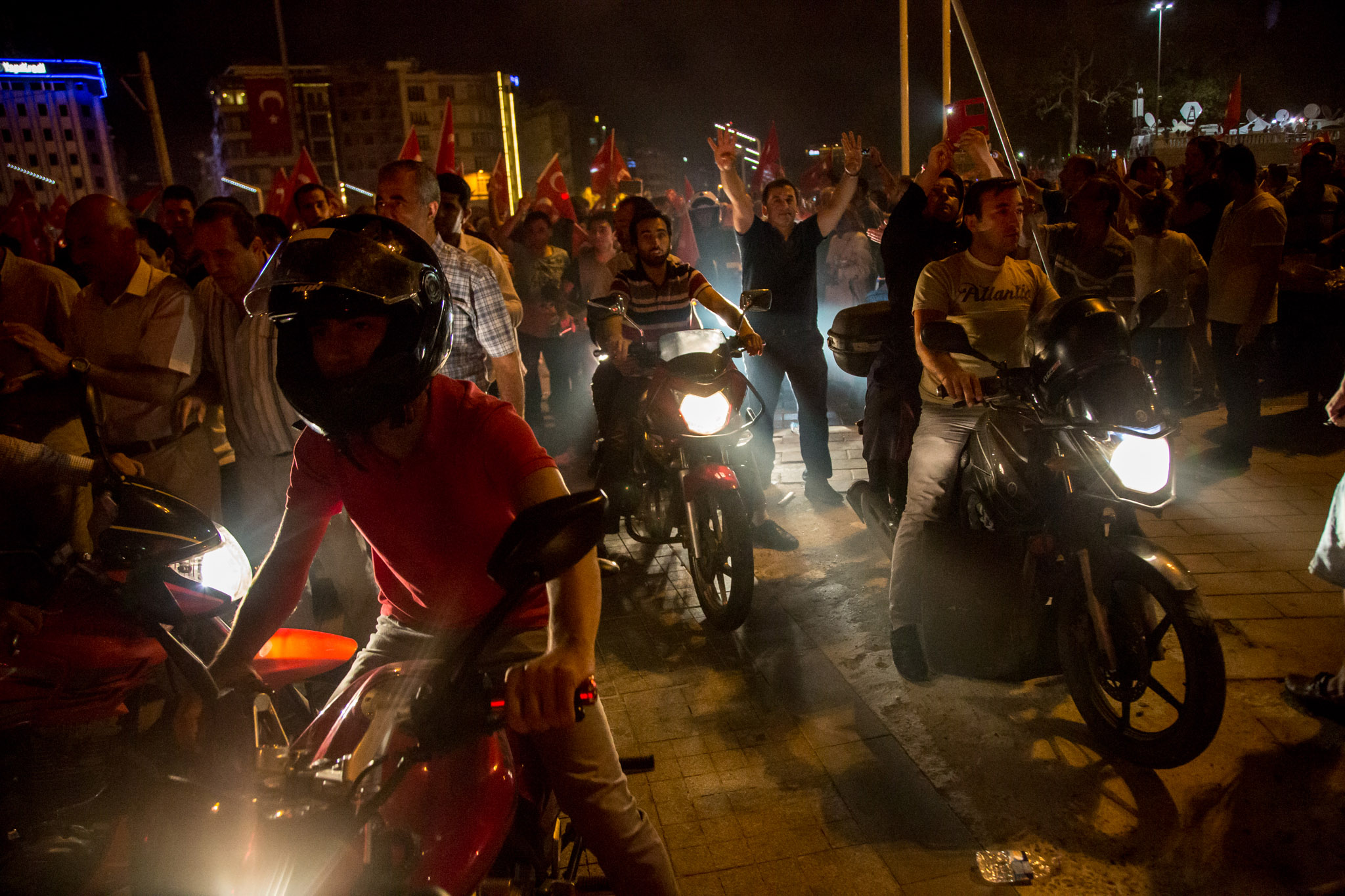
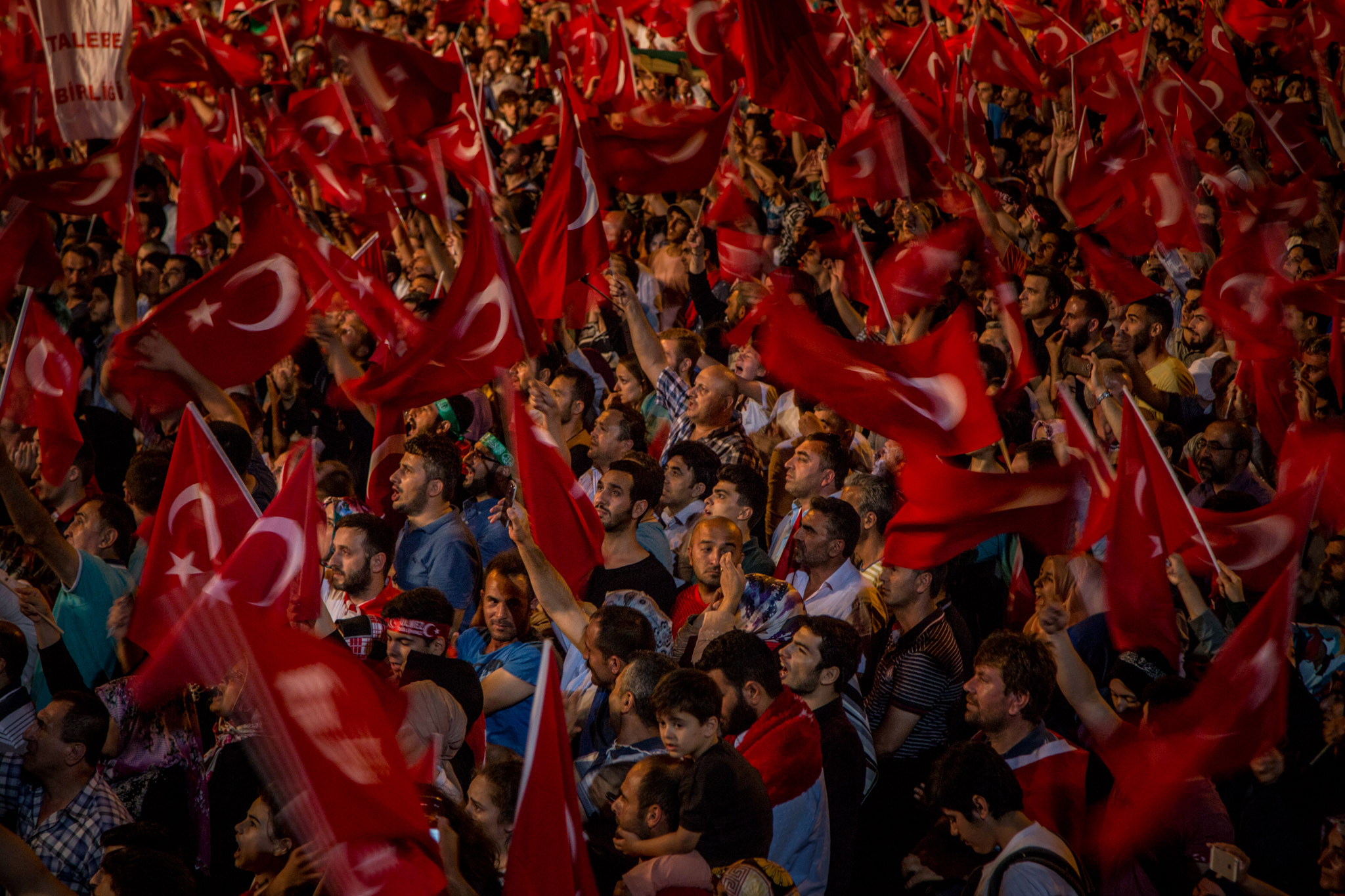
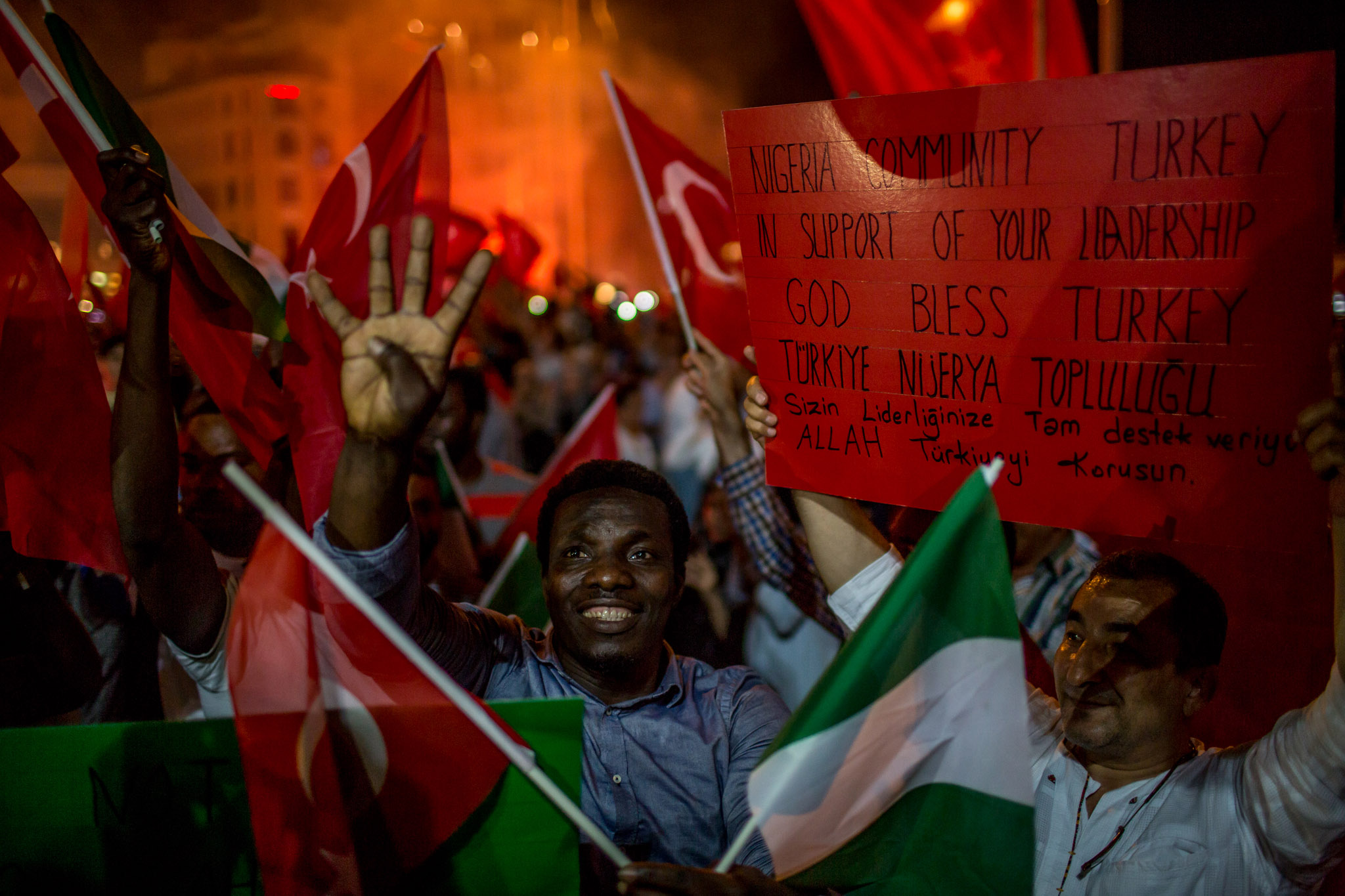
At the end of the day, a group of hijab-wearing young women carrying Turkish flags are going up the Istiklal Street to join them. A motorcycle column enters the square, accompanied by the sound of horns and the screams of the crowd. Dozens of people crowd closer to the stage, waving red flags. In breaks between speeches they sing songs and chant. The most popular chant goes like this: “Yalla! Bismillah! Allahu Akbar!”
Behind the gathering, there is a half-circle of kebab sellers. Visitors wash down food with refreshing ayran and snack on red tomatoes, the color of the Turkish flag.
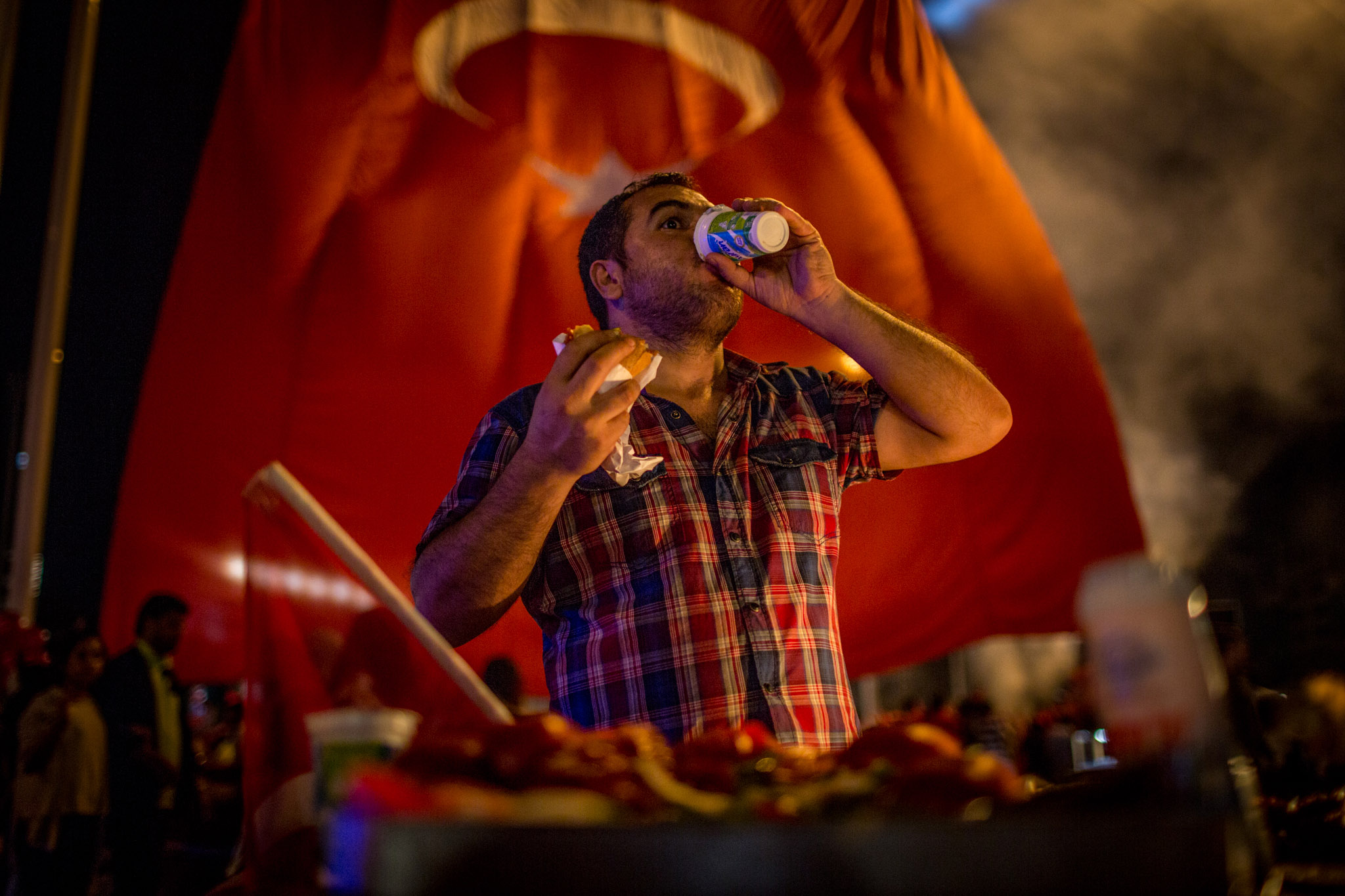
Photo: Petr Shelomovskiy.
